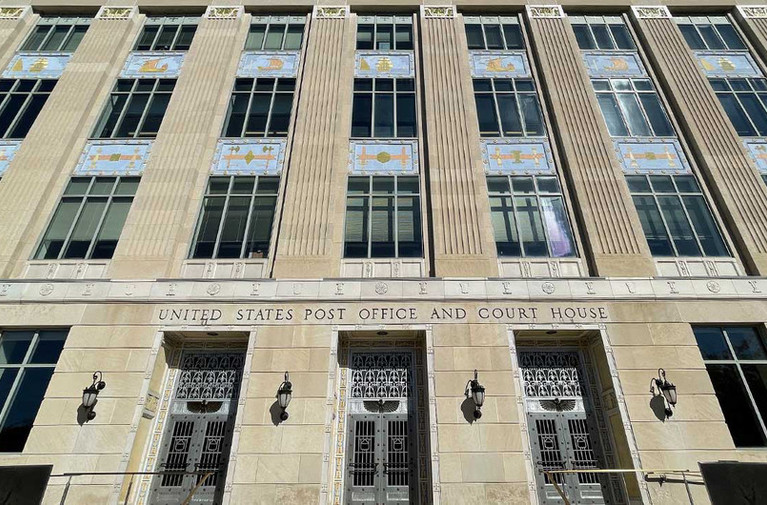Philadelphia Firm Wins Rare Temporary Restraining Order in $430K Cryptocurrency Theft Case
In a significant victory for victims of cryptocurrency fraud, Philadelphia-based law firm Dynamis LLP secured a rare temporary restraining order (TRO) in a $430,000 cryptocurrency theft case, marking a pivotal moment in the fight against digital asset fraud. The case, heard in the U.S. District Court for the Eastern District of Pennsylvania, highlights the growing role of legal intervention in recovering stolen crypto assets and underscores the firm’s expertise in navigating the complex intersection of blockchain technology and law.
Case Background
The case involves an unidentified client who fell victim to a sophisticated cryptocurrency theft scheme in early 2025. According to court filings, fraudsters gained unauthorized access to the victim’s cryptocurrency wallet through a phishing attack, siphoning off $430,000 in digital assets, primarily Bitcoin and Ethereum. The stolen funds were quickly transferred to multiple centralized exchanges, a common tactic used by cybercriminals to obscure the trail of illicit transactions.
Dynamis LLP, known for its specialized crypto-asset recovery practice, acted swiftly on behalf of the client. The firm collaborated with blockchain forensic experts to trace the stolen assets across the blockchain, identifying key addresses linked to the theft. Armed with this evidence, the firm petitioned the court for a TRO to freeze the assets held on centralized exchanges before they could be further laundered or withdrawn.
Securing the Temporary Restraining Order
On August 15, 2025, U.S. District Judge Anita B. Brody granted the TRO, ordering several cryptocurrency exchanges to freeze the accounts suspected of holding the stolen funds. The court’s decision was based on Dynamis LLP’s compelling evidence, which included blockchain transaction records and expert testimony demonstrating the imminent risk of the assets being moved beyond recovery. The TRO is a rare judicial remedy in cryptocurrency cases due to the decentralized and pseudonymous nature of blockchain transactions, which often complicates legal recourse.
“This ruling is a game-changer for victims of crypto theft,” said lead attorney Sarah Klein of Dynamis LLP. “By securing a TRO, we’ve ensured that the stolen assets remain in place while we pursue further legal action to recover our client’s funds. It sends a strong message that the courts are ready to act decisively in these cases.”
Legal and Technical Challenges
Cryptocurrency theft cases pose unique challenges due to the decentralized nature of blockchain technology and the speed at which funds can be moved across borders. Unlike traditional financial systems, where banks can freeze accounts with relative ease, crypto assets are often held in non-custodial wallets or transferred through mixing services and “peel chains” to obscure their origins.
Dynamis LLP’s success in this case hinged on its ability to act quickly and leverage advanced blockchain analysis. The firm worked with forensic partners to trace the stolen funds to centralized exchanges, which are subject to U.S. jurisdiction and anti-money laundering regulations. This strategic approach allowed the firm to build a strong case for the TRO, demonstrating that the funds were at risk of being irretrievably lost without immediate court intervention.
Broader Implications
The ruling comes amid a surge in cryptocurrency-related fraud, with the U.S. Department of Justice and Internal Revenue Service reporting significant increases in crypto theft and laundering cases. For instance, a recent indictment charged two individuals with stealing and laundering over $230 million in cryptocurrency, highlighting the scale of the issue. In another case, the Justice Department seized over $2.8 million in cryptocurrency linked to fraud schemes, underscoring the growing focus on digital asset recovery.
The TRO secured by Dynamis LLP sets a precedent for future crypto theft cases, demonstrating that swift legal action, combined with technical expertise, can yield results. “This case shows that the legal system is adapting to the realities of cryptocurrency,” said blockchain analyst Dr. Emily Tran, who assisted in the case. “By targeting centralized exchanges, firms like Dynamis can interrupt the laundering process and protect victims.”
Next Steps
With the TRO in place, Dynamis LLP is pursuing a permanent injunction and working with law enforcement to identify the perpetrators. The firm is also coordinating with the affected exchanges to facilitate the return of the frozen assets to the victim. The case is expected to proceed to a full hearing in October 2025, where the court will determine the final disposition of the funds.
For the broader legal community, this victory underscores the importance of specialized knowledge in cryptocurrency law. As digital assets become more mainstream, law firms with expertise in blockchain forensics and crypto litigation are likely to see increased demand. Dynamis LLP’s success in this case positions it as a leader in this emerging field, offering hope to victims of crypto fraud.
A Growing Trend
The Philadelphia firm’s win reflects a broader trend of law firms adapting to the challenges of cryptocurrency-related disputes. According to a 2025 report by Clio, 36% of law firms are now using AI and blockchain analysis tools to handle complex cases, including those involving digital assets. As cybercriminals continue to exploit the anonymity of blockchain, legal professionals are stepping up to bridge the gap between technology and justice.
For victims of cryptocurrency theft, the message is clear: recovery is possible with the right legal and technical expertise. Dynamis LLP’s landmark TRO victory in this $430,000 theft case is a testament to the power of proactive legal action in the fight against crypto crime.
Sources: U.S. District Court for the Eastern District of Pennsylvania, Dynamis LLP, Internal Revenue Service, U.S. Department of Justice, Clio’s 2025 Legal Trends Report
